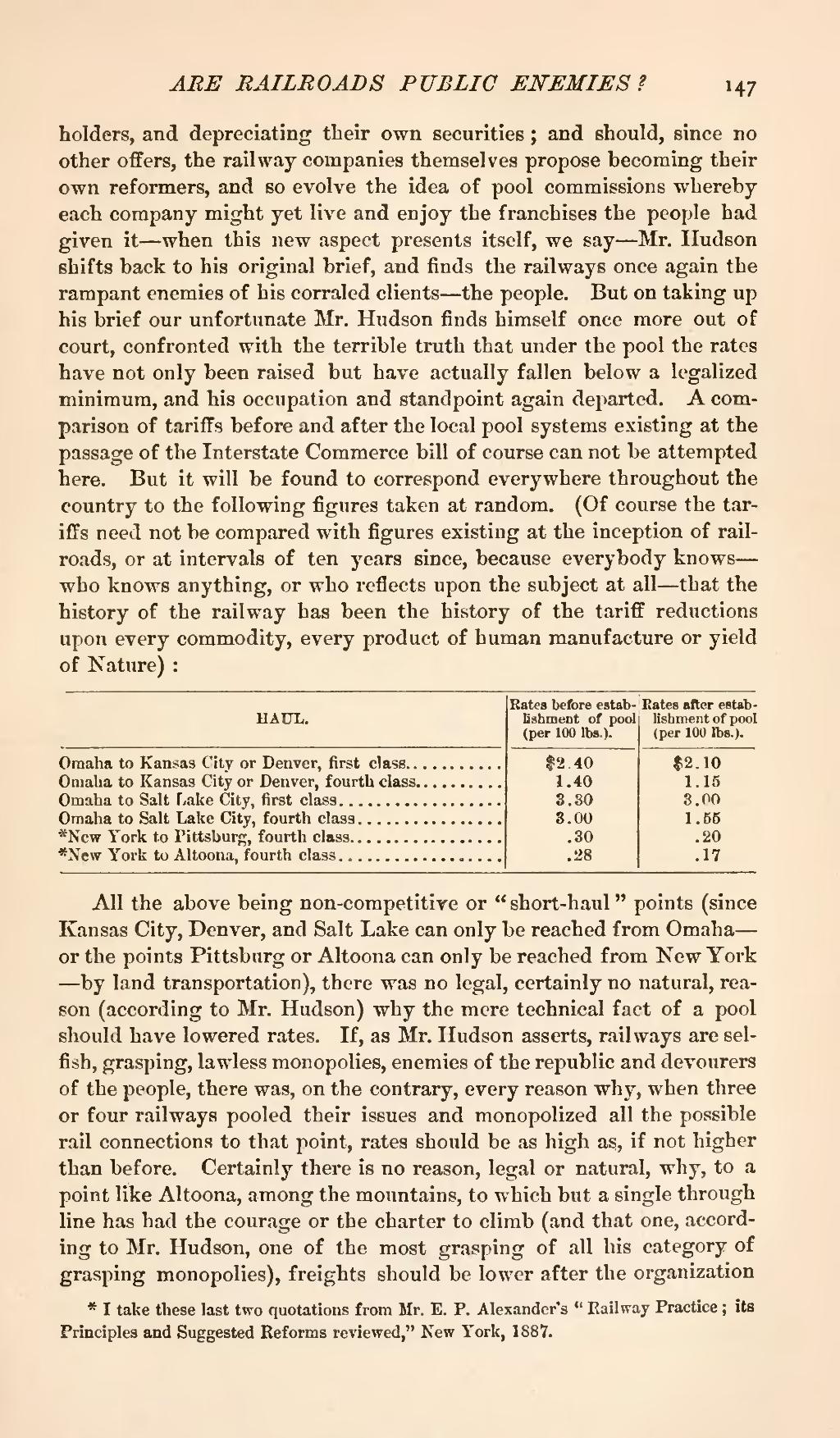holders, and depreciating their own securities; and should, since no other offers, the railway companies themselves propose becoming their own reformers, and so evolve the idea of pool commissions whereby each company might yet live and enjoy the franchises the people had given it—when this new aspect presents itself, we say—Mr. Hudson shifts back to his original brief, and finds the railways once again the rampant enemies of his corraled clients—the people. But on taking up his brief our unfortunate Mr. Hudson finds himself once more out of court, confronted with the terrible truth that under the pool the rates have not only been raised but have actually fallen below a legalized minimum, and his occupation and standpoint again departed. A comparison of tariffs before and after the local pool systems existing at the passage of the Interstate Commerce bill of course can not be attempted here. But it will be found to correspond everywhere throughout the country to the following figures taken at random. (Of course the tariffs need not be compared with figures existing at the inception of railroads, or at intervals of ten years since, because everybody knows—who knows anything, or who reflects upon the subject at all that the history of the railway has been the history of the tariff reductions upon every commodity, every product of human manufacture or yield of Nature):
| HAUL. | Rates before estab- lishment of pool (per 100 lbs.). |
Rates after estab- lishment of pool (per 100 lbs.). |
| Omaha to Kansas City or Denver, first class. | $2.40 | $2.10 |
| Omaha to Kansas City or Denver, fourth class. | 1.40 | 1.15 |
| Omaha to Salt Lake City, first class. | 3.30 | 3.00 |
| Omaha to Salt Lake City, fourth class. | 3.00 | 1.55 |
| [1]New York to Pittsburg, fourth class. | .30 | .20 |
| [1]New York to Altoona, fourth class. | .28 | .17 |
All the above being non-competitive or "short-haul" points (since Kansas City, Denver, and Salt Lake can only be reached from Omaha—or the points Pittsburg or Altoona can only be reached from New York—by land transportation), there was no legal, certainly no natural, reason (according to Mr. Hudson) why the mere technical fact of a pool should have lowered rates. If, as Mr. Hudson asserts, railways are selfish, grasping, lawless monopolies, enemies of the republic and devourers of the people, there was, on the contrary, every reason why, when three or four railways pooled their issues and monopolized all the possible rail connections to that point, rates should be as high as, if not higher than before. Certainly there is no reason, legal or natural, why, to a point like Altoona, among the mountains, to which but a single through line has had the courage or the charter to climb (and that one, according to Mr. Hudson, one of the most grasping of all his category of grasping monopolies), freights should be lower after the organization
